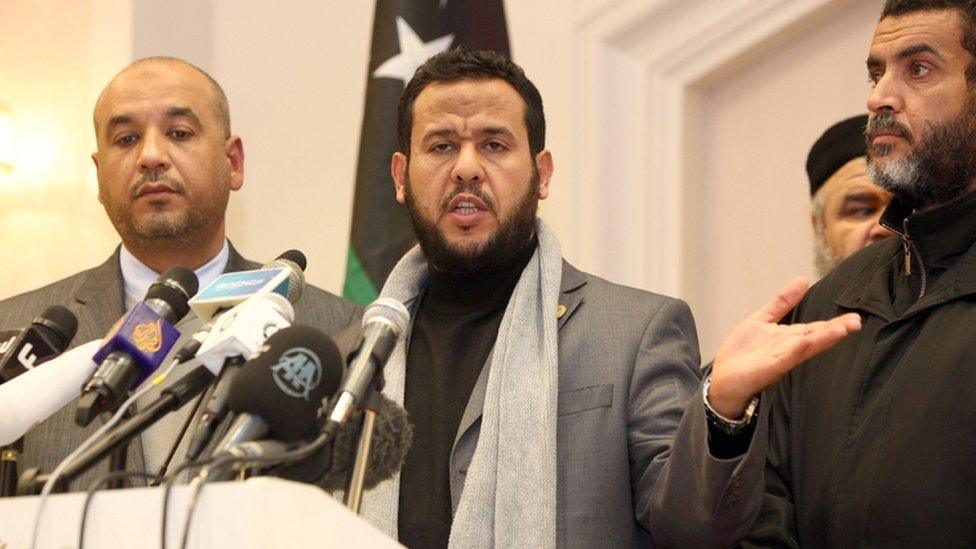Abdul Hakim Belhaj: The documents trail that nailed UK's secret role in rendition
- Published
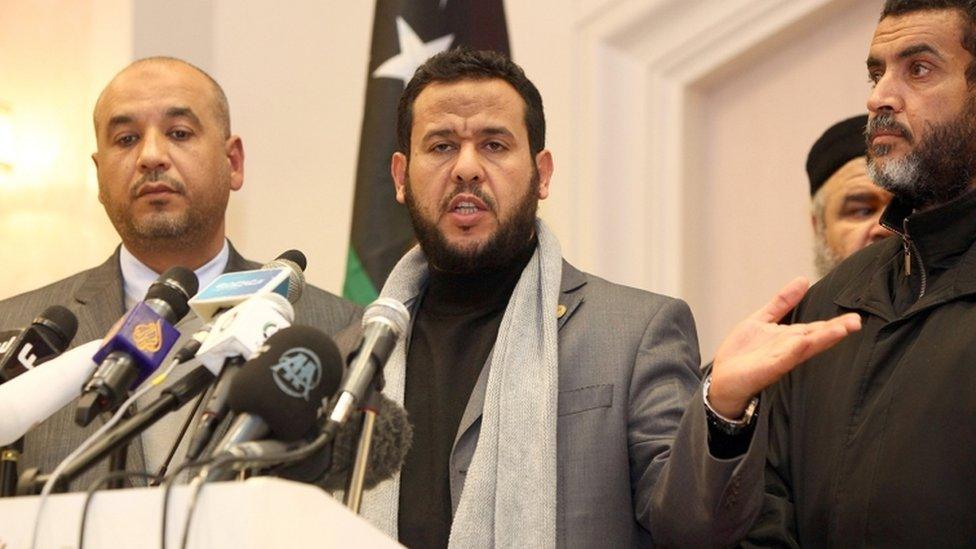
Abdul Hakim Belhaj spent six years in jail in Libya where, he says, he was tortured
The British government has made an unprecedented apology to a former Libyan dissident and his wife who were abducted with crucial assistance from MI6.
Abdul Hakim Belhaj said MI6 helped the US seize him in Thailand in 2004 to return him and his Moroccan wife, Fatima Boudchar, to Libya, where he says he was tortured.
The government has accepted the couple's account of what happened - and the settlement is the first time ministers have apologised for a specific act involving British security agencies.
The legal battle came about because documents discovered in Tripoli, Libya - during the fall of the dictator Colonel Muammar Gaddafi in 2011 - revealed how MI6 became involved in the couple's rendition.
While the government's apology maintains a denial of legal liability, the settlement leaves questions unanswered about how much others in government were involved in what happened.
This is how the affair developed.
In the wake of the 9/11 terror attacks in 2001, the US and its allies were in a race to understand jihadist groups they had previously not done enough to track.
British intelligence agencies wanted to know more about Libyan dissidents who had been living under UK protection - mostly families linked to the Libyan Islamic Fighting Group (LIFG).
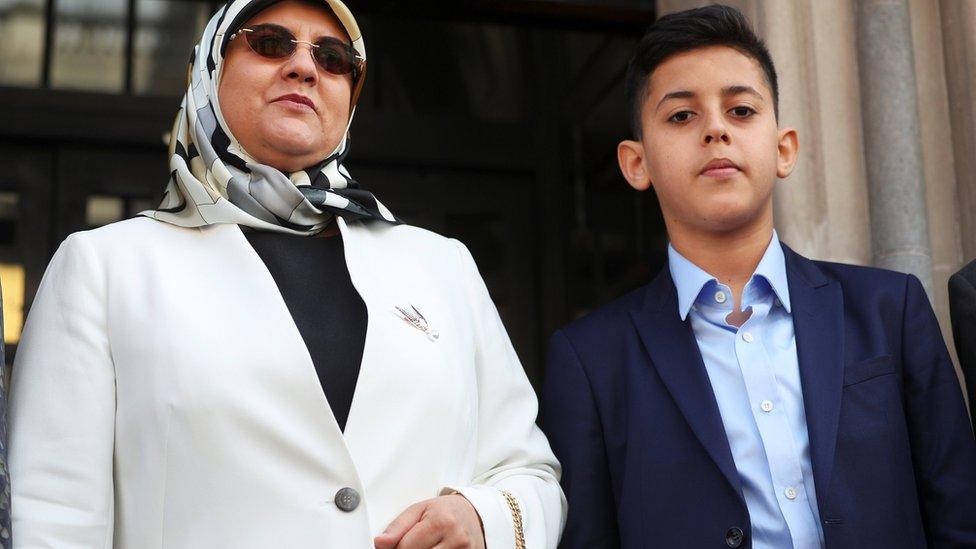
Fatima Boudchar, wife of Abdul Hakim Belhadj, and their son, Abderrahim
The group had attempted armed overthrows of Gaddafi's regime in the 1990s and its defeated leaders had scattered around the world.
The UK's plan was to convince Colonel Gaddafi to not only stop threatening the West, but to also provide intelligence on these LIFG members and their potential links to al-Qaeda.
In September 2011, a team from Human Rights Watch raided the abandoned headquarters of Libyan's External Security Organisation (ESO) after the dictator's eventual downfall - and the documents they found made jaws drop.
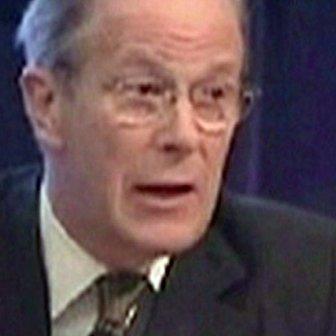
Sir Mark Allen, whose communications reveal the UK's role in handling Mr Belhaj
The papers included evidence of how MI6 and the CIA had groomed Gaddafi and his henchmen to come in from the cold - and one senior MI6 officer, Sir Mark Allen, was at the centre of the operation.
From 2001 he sought to convince Moussa Koussa - his Libyan counterpart and a man who had been widely accused of torture and other human rights abuses - to work with the West.
Mr Koussa wanted two things: international recognition for Libya and respect for Gaddafi - and intelligence leading to the capture of LIFG leaders on the run.
The Tripoli documents show the pair met on 20 September 2001 and agreed that each country's counter-terrorism teams should work together against common enemies.
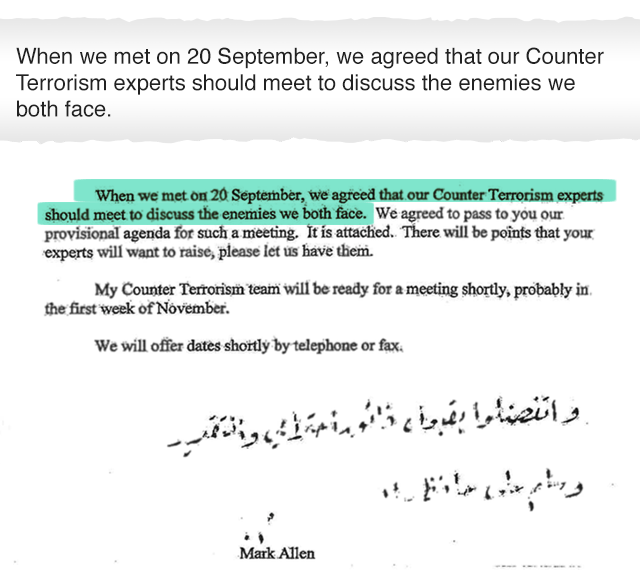
MI6 asked if the Libyans would help operations to penetrate jihadist groups.
The next document - from the British side - is the first that referred to Mr Belhaj, albeit through one of his aliases and, confusingly, apparently mixing up some of his details with another dissident who was also later abducted.
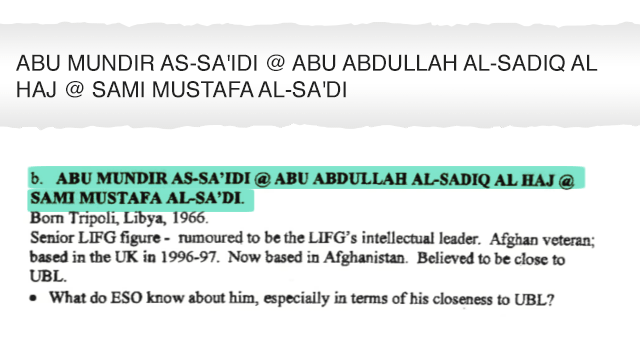
A later secret conference, also including the German and Austrian intelligence services, was detailed in a memo circulated among ESO chiefs.
It said that the British and others were "willing to co-operate" - but the UK had stressed that any co-operation on tracking down what the Libyans called "heretics" would need to be lawful.
The MI6 team promised to help the Libyans and began suggesting they had information that could be useful.
The breakthrough in relations appears to have come in 2002 when Sir Mark finally convinced Libya to work properly with the UK - leading to the then Foreign Office minister Mike O'Brien visiting the country in August.
Deal in the desert
Later that year, the Libyans came to London and, according to their records, attended a "banquet dinner" hosted by MI6 at the £500-a-night Goring Hotel.
The agency was pressing for more - telling the Libyans they had to move faster and further in co-operating with the West if they were going to get the recognition they sought.
All of this diplomacy ultimately led to what became known as the 2004 "deal in the desert" - in which Prime Minister Tony Blair sealed what looked like a remarkable turnaround in Colonel Gaddafi's attitude.
But it came at a price. And that price was, according to the documents at least, the UK's willingness to provide information on the whereabouts of the regime's enemies.
In June 2003, the ESO received a memo from the British setting out the extent of operations to date.
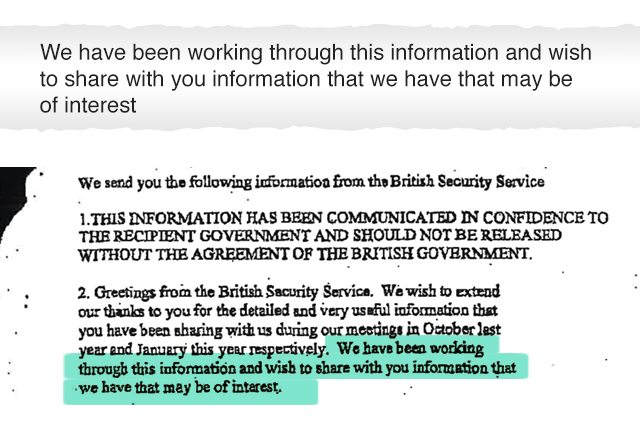
Another document contained the first proof that the UK was apparently willing to provide information on what it knew about Mr Belhaj.
The British agencies thought he was in China - and initially MI6 didn't confirm that to the Libyans.
But in November, a new communication to Tripoli confirmed the British had "embarked on a project" relating to the dissident:
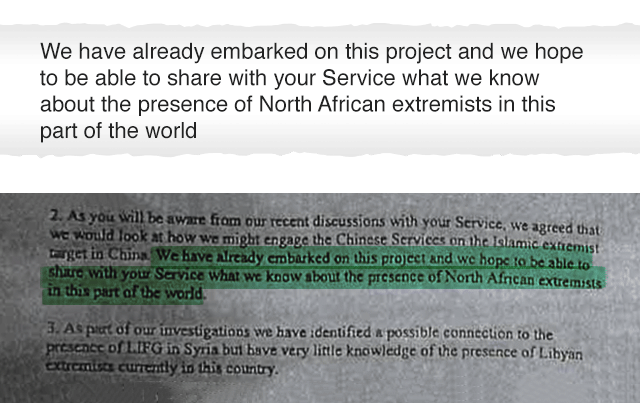
By the end of 2003, the UK was pretty confident the Libyan's were co-operating and on the road to a comprehensive deal for Libya to give up its chemical weapons.
On Christmas Eve of that year, Sir Mark sent a memo to Mr Koussa, thanking him for his efforts:
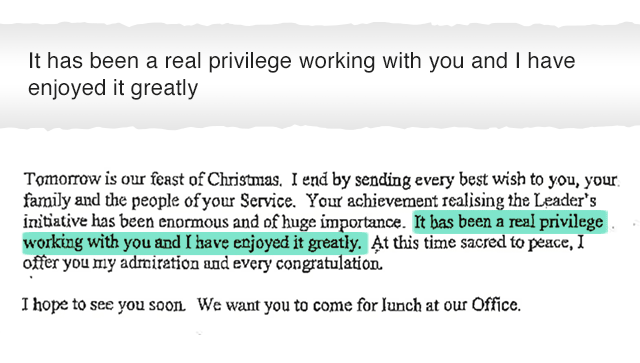
The UK and US were confident they were getting a deal - and it was now time for the UK to settle the intelligence bill.
On 1 March, London told Tripoli that Mr Belhaj, travelling under a pseudonym, had been apprehended by the Chinese authorities as he tried to board a flight to London with his wife, Fatima Boudchar, who was four months pregnant.
The couple were deported to Malaysia and were being held in detention. An MI6 cable listed all the false names Mr Belhaj was thought to be using, such as Abdullah Sadeq, to evade capture.
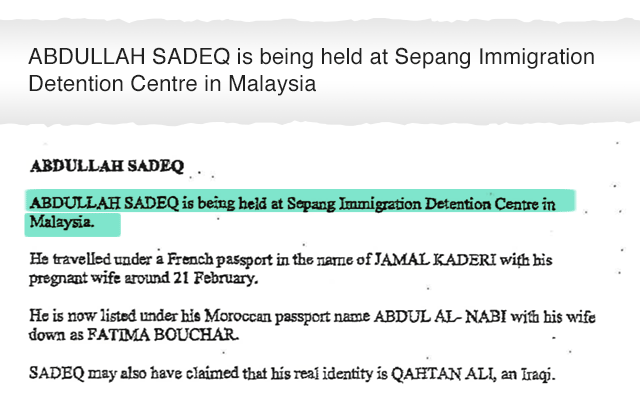
Libya fired off a series of urgent requests to Malaysia's government, requesting that it hand over the "dangerous" dissident who it considered "the prince of the LIFG".
The US intervened and told Tripoli it was going to help secure Mr Belhaj and bring him to Libya - providing that it would get a chance to interrogate him once he was behind bars.
On 6 March, the plan was in place.
Malaysian authorities put Mr Belhaj and Mrs Boudchar on a flight to Bangkok where, instead of being transferred on to a connection for London, the Thai authorities detained them and, according to their lawyers, they were tortured.
The following day, a US rendition flight team picked up the pair and flew them to Tripoli.
On 18 March, Sir Mark sent this congratulatory message to Mr Koussa - making clear that he believed the capture of Mr Belhaj, referred to here by his nom de guerre Abu 'Abd Allsh, was down to the British alone:
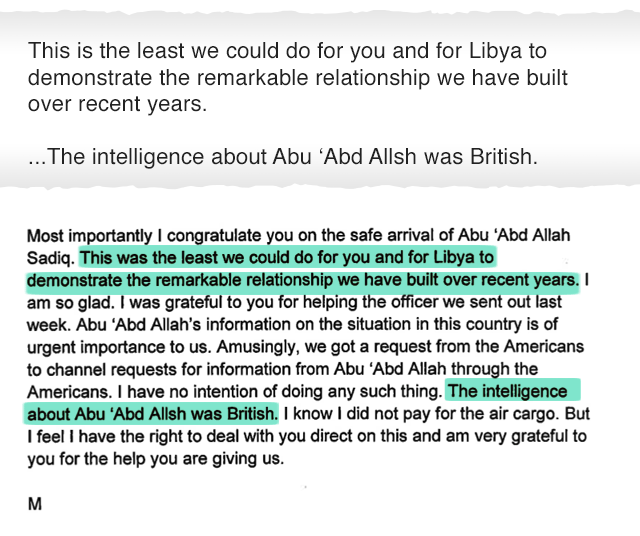
Mr Belhaj, one of Gaddafi's greatest enemies, was tortured over six years and given a death sentence, which was never carried out.
His wife was released before she gave birth - and the son she was carrying at the time was in the House of Commons to hear the historic apology from the UK.
Attorney General Jeremy Wright said the settlement with the couple included a £500,000 payment to Ms Boudchar.
"It is clear that you were both subjected to appalling treatment and that you suffered greatly," Theresa May said in a letter to the pair.
"We should have done more to reduce the risk that you would be mistreated," she added. "We accept this was a failing on our part."
Sir Mark Allen has never spoken publicly about the affair. He, along with former foreign secretary Jack Straw, and all the agencies involved, denied individual wrongdoing.
- Published9 May 2018
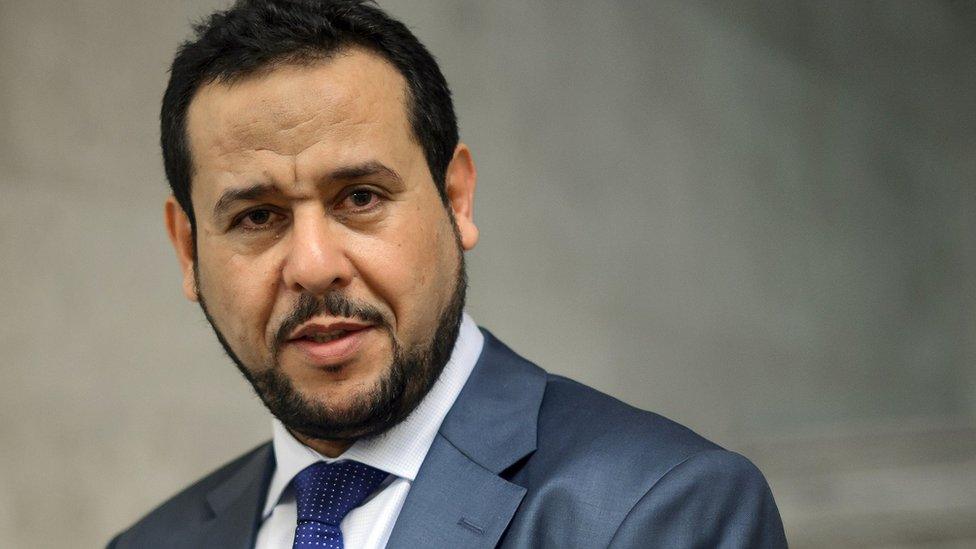
- Published10 May 2018
